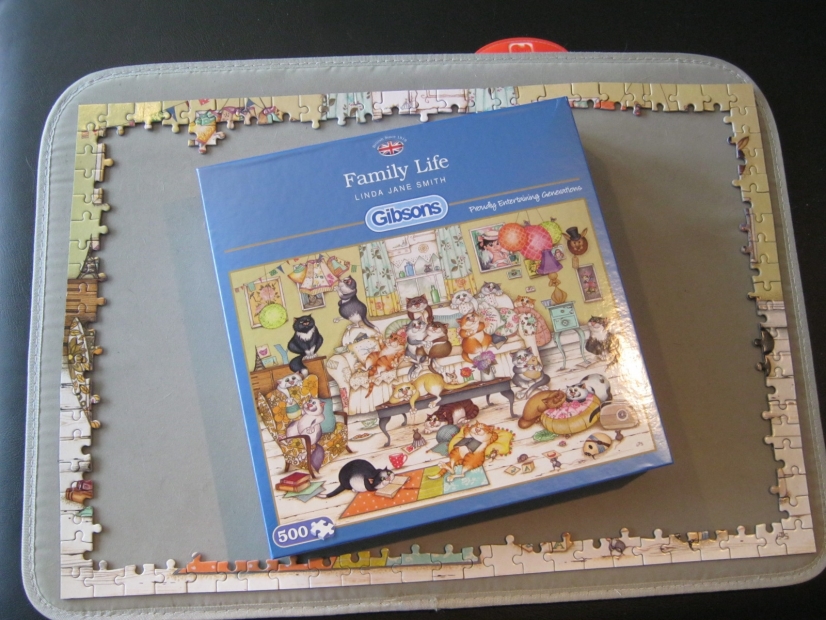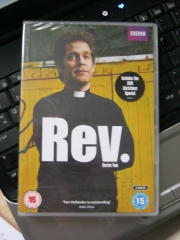This is how one theological educator I know describes the disicipline of regular preaching - a treadmill that cannot be escaped (except through advance negotiation or sickness). It's a slightly harsh/negative descriptor, but one that carries a deal of truth... Apart from those print journalists whose task it is to produce 'leaders' or 'comments' I find it hard to think of many other professions where there is an inbuilt expectation of a decent deliverable every week, rain or shine. Although I know that as soon as people read that, they'll think of others.
The discipline of preaching, the routine of preparing at least one (and when I started out at least two) acts of worship every week is demanding. Having preached weekly for eleven years, twice weekly for a year before that, fortnightly (plus occasional others) for four years before that and infrequently before that, I can safely say I've prepared and delivered a heck of a lot of sermons (of which I'd say less than a dozen have been used more than once). Sometimes it is pure joy, other times it is sheer slog; mollty it is somewhere between the two. Above all it is a deliberate discipline.
So here are a few stories and quotes from my experience, some of which fess up to things most preachers/ministers probably will never admit, about how it sometimes is.
In Season and Out of Season
This phrase, from Paul's charge to Timothy, and hence my own call, is one that I often wonder quite what it means. Preach whether anyone listens or not? Preach whether the time feels right or not? Preach whether you feel like it or not? For this reflection, I am choosing to hear it more along the lines of the latter. Preach whatever 'season' of life you are in. When the words come easy and when you stare at a blank computer screen with a brain devoid of words.... When ministry is rewarding and when, for two pins, you'd throw in the towel and become a checkout operator... When your congegation seems totally engaged and the charismatics would assert that "the Spirit is moving" and when hardly anyone is there and you are not sure anything you are saying makes sense anyway. I think it is a call to resilience, a call to "keep on keeping on", that the LORD's servant refused to be discouraged (my interpretation of the Isaiah words).
If preaching is a vocation, we do it not because we can, but because we cannot not; not because we may but because we must... Because it isn't about us, but about the one who, out of the whole world, looked at us and said "it's you" (and there was no-one else that might have been meant). "Here I am, I can do none other" - unless that's at the heart of it, then the resilience to preach when your heart is breaking or your faith is flickering or your body is exhausted will not be there.
Preach Faith until You Have Faith, Then Preach Faith
These words, or something very similar were spoken to none other than the great John Wesley when he was on a mission trip to the north Americas. An ordained Anglican, he was going through a season of questioning his faith and wondered, should he still be preaching. He took advice and was told to preach faith until he had faith, then to preach faith. We know the rest of the story.
In my second year at college, I chose to work with a Roman Catholic church, which was challenging and painful, engaging and enjoyable in roughly equal measure. Roman Catholics can do major festival brilliantly, and especially Easter. We jourrneyed through Holy Week to Good Friday, culminating in the moment at 3 p.m. when there is no doubt whatsoever that Jesus is dead, and the empty ache of Holy Saturday must be faced. The Easter Vigil from Saturday to Sunday is an amazing spectacle but it took me the closest I have ever come to losing my faith. The church gradually filled with light and colour as the first Mass of Easter was celebrated... and I, as a non-RC person was excluded. The emptiness was not displaced. Christ did not rise, and I wondered if he ever would. I had an evening service to preach at elsewhere, and no choice but to preach faith... (who knew the first year Sprituality course for which I'd chosen to research Wesley would prove so helpful...). It was only when I came to preach on Thomas at an evening serivce a full week later that something pierced my inner gloom. I've never got back to where I was before that moment, but fifteen years later I still believe, still preach.
Part of the disicpline of preaching, the treadmill, is to preach faith when you have little faith, to speak of hope when God seems silent or adsent. The challenge is, perhaps to do so in a way that honours the struggle and avoids glib platitudes.
Let the Dead Bury their own Dead - You, Preach the Good News
It was August 2008, I had just completed walking Offa's Dyke south to north and I had agreed to preach at my "Sending Church" on the Sunday before heading home. At 7 a.m. that morning my mobile phone rang with the news that a member of my congregation in Dibley had died after a short, courageous journey with cancer.
This was one of my very rare 'repeat perfomance' sermons, adapted from one that I'd preached at Dibley a few weeks earlier, I think (I have not checked) on some of the harder words of Jesus. It included "let the dead bury their own dead, you, preach the Good News."
Standing in a familiar church, with people who had watched me morph from engineer to student to minister, and wanting to be in Dibley embracing the congregation entrusted to me, I stood up to preach. Suddenly I understood these words in a whole new way, and, like my experience in Easter 2001, I can never go back to the time before it.
Whatever is going on, no matter how I feel, the call is a call to preach Good News... to find hope, love, promises, hints-of-glimspes of God. Afterwards I can crumple and crumble; afterwards I can weep or rage. But in that moment, my task is to preach...
People tell me I do a good funeral, I'd like to think that maybe that is a practical outworking of this tough call.
Discipline
Preaching, for me, is not so much a treadmill as a disicipline. Feelings and circumstances may (and perhaps should) inform my preaching, but they can never control it. Likewise, faith or its lack, questions or confusion are not a bar to my preaching, and sometimes I must preach despite them.
I am 'contracted' to lead worship 41 Sundays a year... to prepare and deliver that number of sermons. In addition are a few evenings, a share of Uni Chapel prayers, some mid-week reflections and a very occasional guest preach. It goes without saying that the 'quality', whatever that means, will vary. That sometimes what I deliver is prepared in haste and lacks refinement. That sometimes I will have agonised over a word or phrase. That sometimes I will have stared, impotent at the screen for hours, That sometimes I will be wowed by a new insight I long to share...
And always, always there is the mystery that is preaching. That my words are heard and morphed into something meaningful for someone or several someones. That now and then there are 'hmmmm' moments. That occasionally someone will say "that was for me". And that very, very occasionally, I will abandon the notes I've laboured over and simply speak, because that, too, is Godly.
You, preach the word, be ready in season and out of season.
Preach faith until you have faith, then preach faith.
Let the dead bury their own dead, you preach the Good News.
This, for me is the disicipline of preaching, and if it's a 'treadmill' it's one I am happy to tread, trusting that somehow this is what God requires of me.

